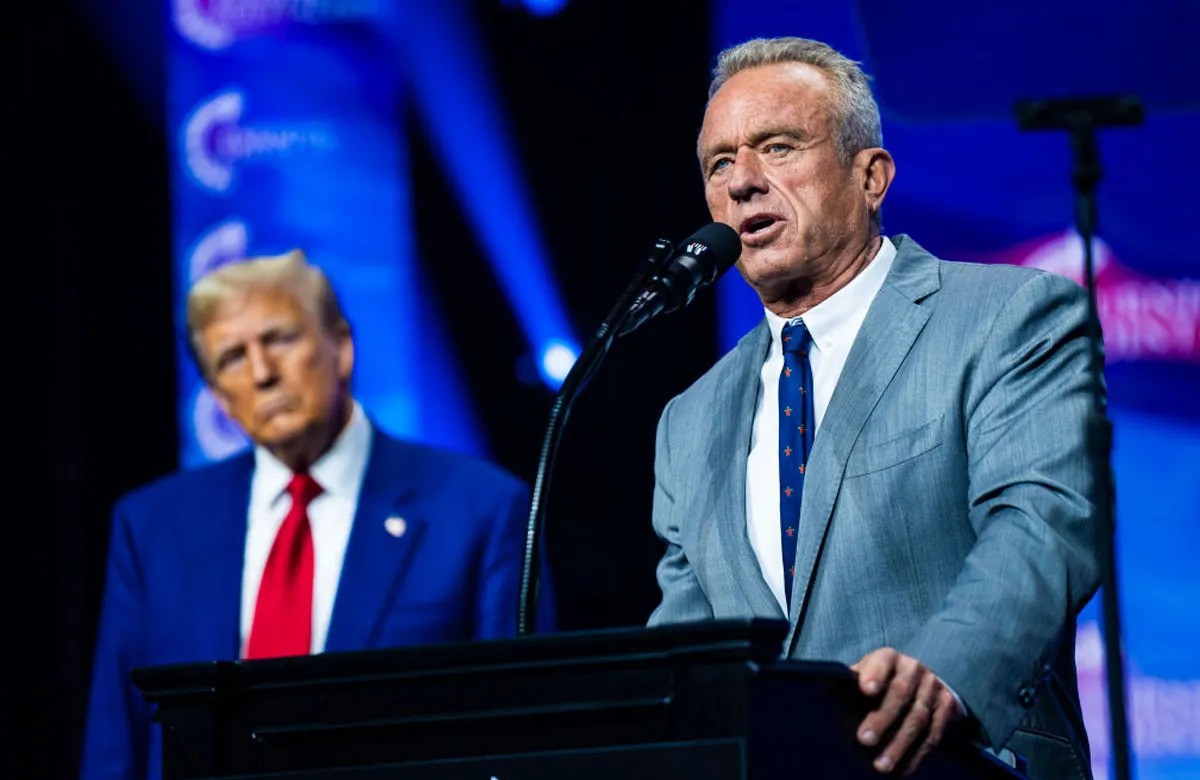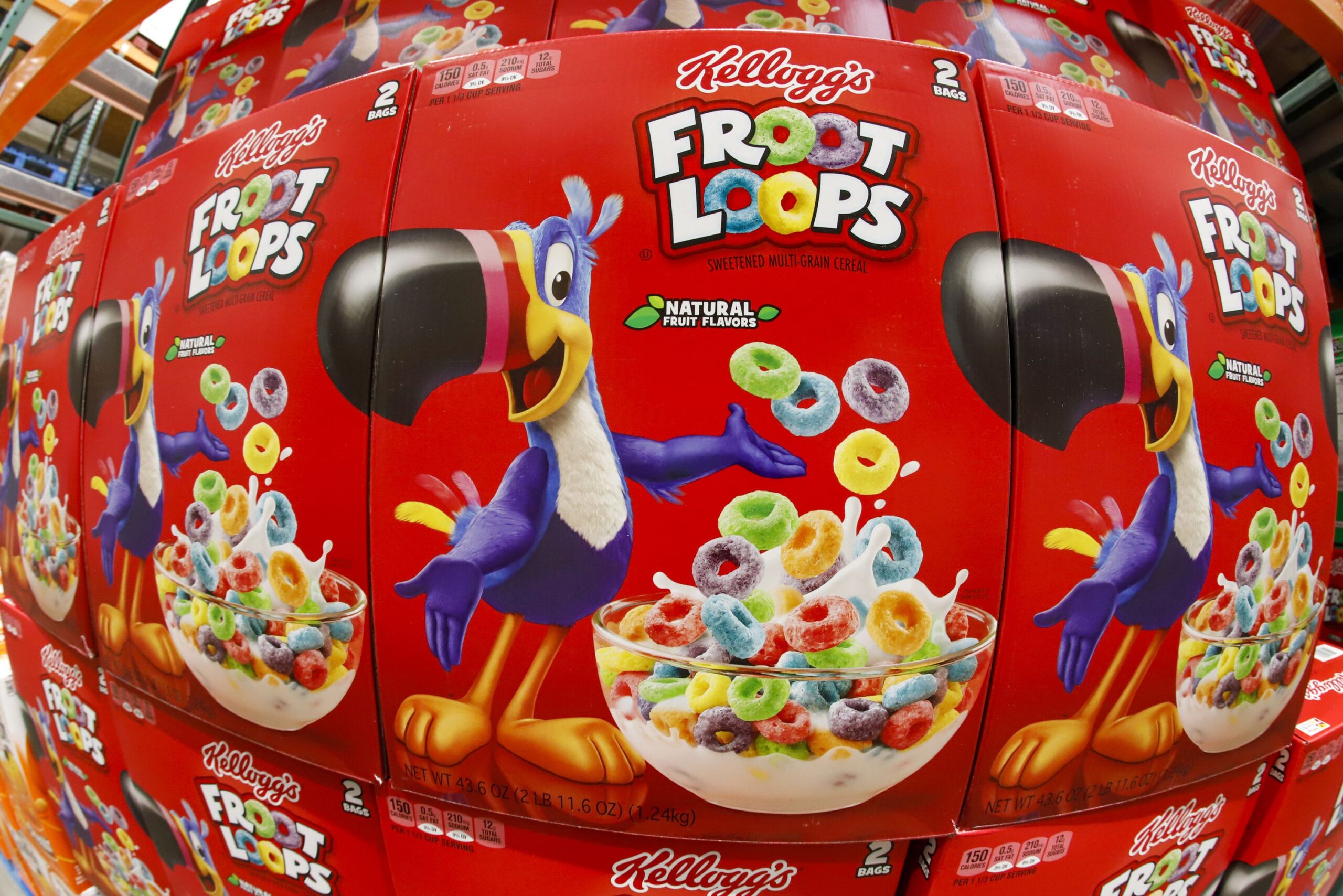The New York Times (NYT) recently found itself at the center of a heated debate after publishing a fact-check of Robert F. Kennedy Jr.’s remarks about artificial ingredients in a popular breakfast cereal.
Kennedy, now nominated by President-elect Donald Trump to head the Department of Health and Human Services (HHS), has been vocal about his concerns over food safety and health issues in the United States. In a post-election interview on MSNBC, Kennedy highlighted discrepancies in the ingredients of Froot Loops sold in the U.S. versus Canada, reigniting his criticism of the Food and Drug Administration (FDA).
Kennedy Calls for Reform in Food Safety

Kennedy has made it clear that overhauling the FDA is a top priority. “In some categories, their entire departments, like the nutrition department in the FDA, they have to go. They’re not doing their job. They’re not protecting our kids. Why do we have Froot Loops in this country that have 18 or 19 ingredients, and you go to Canada, and it’s got two or three?” Kennedy said during his MSNBC interview.
As part of Trump’s incoming administration, Kennedy has vowed to tackle chronic health challenges and combat “corruption” within regulatory agencies, pledging to “Make America Healthy Again.”
NYT’s Fact-Check: Missing the Point?
The NYT attempted to scrutinize Kennedy’s claims, publishing a report that analyzed differences in the cereal’s ingredient lists. Their fact-check acknowledged Kennedy’s focus on artificial additives but dismissed his overarching argument.
“Mr. Kennedy has singled out Froot Loops as an example of a product with too many artificial ingredients, questioning why the Canadian version has fewer than the U.S. version,” the NYT wrote. “But he was wrong. The ingredient list is roughly the same, although Canada’s has natural colorings made from blueberries and carrots while the U.S. product contains red dye 40, yellow 5 and blue 1 as well as Butylated hydroxytoluene, or BHT, a lab-made chemical that is used ‘for freshness,’ according to the ingredient label.”
Public Reaction: Critics Take Aim

The fact-check quickly drew ridicule on social media. Critics argued that, rather than debunking Kennedy, the NYT inadvertently validated his concerns about artificial ingredients in U.S. food products.
“Spitting out my coffee after reading this NYT ‘fact check’ of RFK Jr.,” X user Brad Cohn wrote in a widely shared post, mocking the NYT’s analysis. “‘As you see, the ingredient list is just completely identical, except the US product contains formaldehyde, cyanide, and nearly undetectable levels of saxitoxin.'”
Jason Howerton, CEO of REACH digital, questioned the integrity of media and regulatory agencies. “Read this ‘fact check’ on @RobertFKennedyJr from the NYT and tell me with a straight face we don’t need a radical transformation of our media and health agencies,” he posted.
Turning Points USA founder Charlie Kirk joined the criticism.
“This is what passes for a ‘fact check’ at The New York Times,” Kirk wrote.
“The media lie a lot, but fortunately for us, they are also VERY stupid.”
Podcaster Jay Anderson called out the publication as well. “This has got to be the dumbest ‘Fact Check’ on RFK Jr. from the New York Times… who approved this?”
NYT Issues Correction
Following the backlash, the NYT updated its report to clarify Kennedy’s comments. “Because of an editing error, an earlier version of this article incorrectly described Mr. Kennedy’s recent comments on Froot Loops. He was comparing the total number of ingredients in the U.S. and Canadian versions of the cereal, not the number of artificial ingredients,” the correction read.
Kennedy’s Appointment Sparks Debate
As Kennedy prepares to lead HHS, his nomination has stirred significant controversy. Media outlets and health professionals warn his stance on vaccines and food safety could pose risks to public health. Critics argue his leadership might “cost lives,” while supporters believe his skepticism toward existing health policies is necessary for meaningful reform.
Kennedy remains focused on his goals. According to his spokesperson, Stefanie Spear, “We can all unify behind the goal of making American food the healthiest and most nutritious in the world.”



